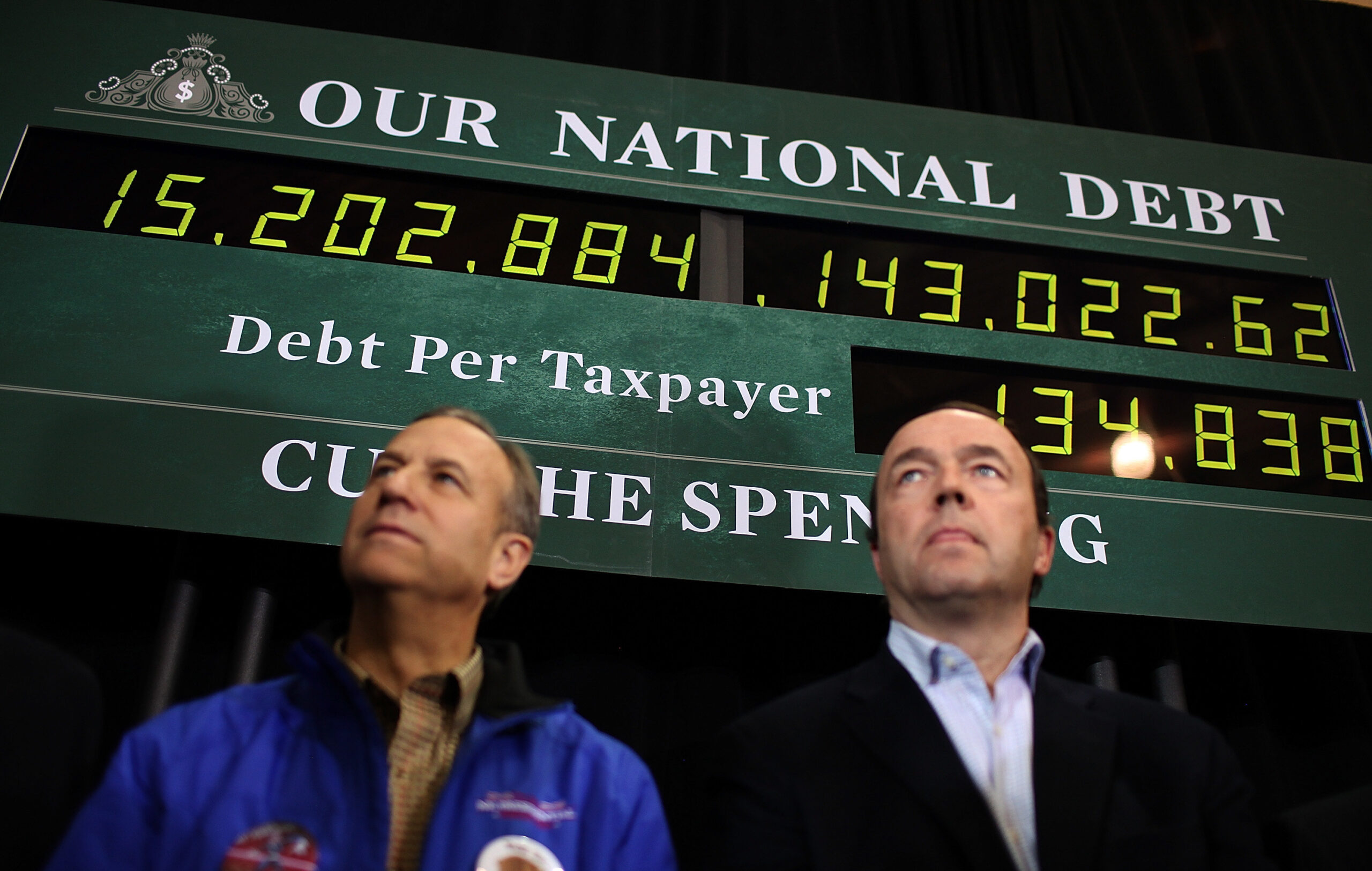
Getty Images
During almost any discussion of legislation in Congress, the national debt will reliably be introduced into the debate. This topic is unavoidable when allocating federal funds for any reason, but especially during budget proceedings. Usually, Republicans voice their concerns over excessive national spending and the effect that it would have on the federal deficit. But


